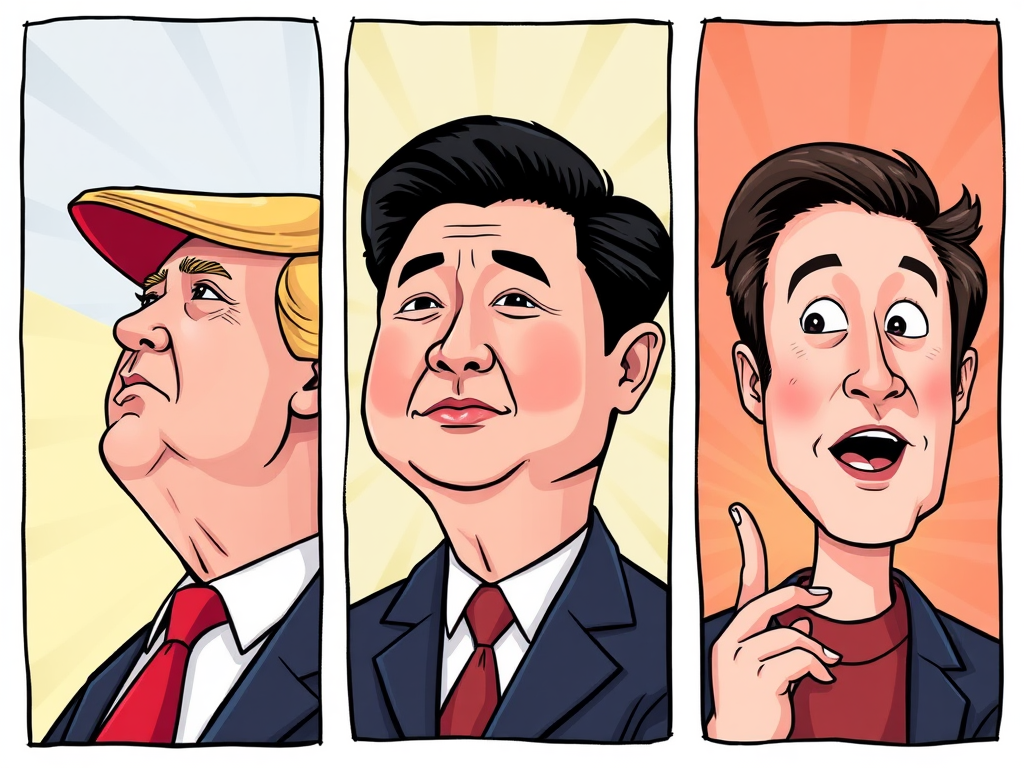In a dramatic escalation of U.S.-China trade tensions, the Dow Jones Industrial Average suffered a staggering drop of over 2,200 points on Friday, marking its worst performance since the onset of the COVID-19 pandemic. This plunge, alongside a 1,679 point decline earlier in the week, wiped out a staggering $6.4 trillion in market value over just two days. The catalyst for this financial turmoil is China’s announcement of a 34% tariff on U.S. imports, effective April 10, in retaliation for President Trump’s proposed 54% tariff on Chinese goods set to take effect on April 9.

The tech-heavy Nasdaq index fell 5.8%, entering bear market territory as it dropped over 20% from its December peak. Meanwhile, the S&P 500 saw a reduction of 5.97%, reflecting widespread fears that Trump’s tariffs could increase inflation and potentially trigger a recession, as warned by Federal Reserve Chair Jerome Powell.
Elon Musk has publicly distanced himself from Trump’s tariff policies, advocating for a zero-tariff trade relationship between the U.S. and Europe. Musk’s comments, made during a virtual rally, suggest a preference for free trade over protectionist measures, further highlighting the divide among influential figures regarding trade strategies.
While some analysts suggest that the tariffs could correct market imbalances and bring jobs back to America, critics argue that such measures disproportionately benefit the wealthy, exacerbating the wealth gap. The current economic landscape raises concerns about the sustainability of wage growth amid rising corporate profits, leading to calls for action to support the middle class.
As fears of an impending recession loom large, the market’s volatility reflects deep-seated concerns about the long-term implications of escalating trade wars, making this a pivotal moment for both investors and policymakers. The unfolding situation emphasizes the need for careful navigation of trade relationships to foster economic stability.

